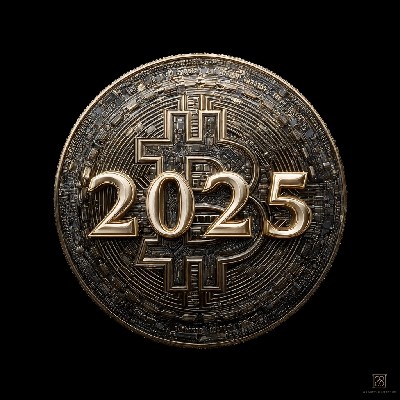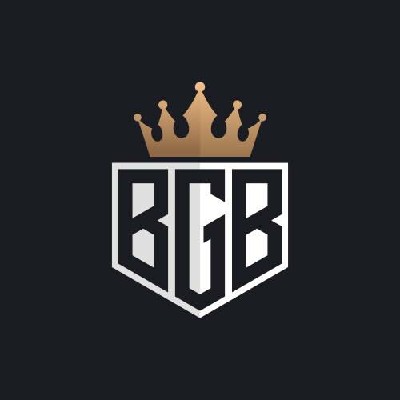
سعر DecentralandMANA
MANA إلى محول AED
سعر Decentraland الحالي اليوم بعملة AED
هل تعتقد أنّ سعر Decentraland سيرتفع أو ينخفض اليوم؟
معلومات حول سوق Decentraland
نبذة حول Decentraland (MANA)
معلومات عن منصة Decentraland (MANA)
Decentraland هي منصة الواقع الافتراضي التي تمكن المستخدمين من امتلاك وإنشاء وتداول الأصول الافتراضية والعقارات الرقمية. تم إطلاق Decentraland في عام 2017 على أساس بلوكشين الإيثيريوم، مما يوفر ميتافيرس مفتوحًا ولامركزيًا حيث يمكن للمستخدمين التفاعل والتواصل الاجتماعي وبناء تجارب غامرة دون الحاجة إلى وسطاء أو منصات تقليدية. في Decentraland، يمكن للمستخدمين تصميم البيئات الرقمية، واستضافة الأحداث، وحتى إنشاء أعمال افتراضية، وسد الفجوة بين العالمين الافتراضي والمادي.
في نظام Decentraland البيئي، يمكن للمستخدمين شراء قطع من الأراضي الافتراضية المعروفة باسم «LAND» وتطويرها إلى إبداعات مختلفة باستخدام المحرر المدمج في المنصة. يتم تمثيل هذه الأرض كرموز غير قابلة للاستبدال (NFTs) على بلوكشين الإيثيريوم، مما يوفر للمستخدمين الملكية الحقيقية لأصولهم الافتراضية. وباعتبارها NFTs، فإن كل LAND فريدة ونادرة وقابلة للتشغيل المتبادل مع عوالم ومنصات افتراضية أخرى، مما يعزز تطبيقاتها.
المصادر
الورقة البيضاء الرسمية: https://decentraland.org/whitepaper.pdf
الموقع الرسمي: https://decentraland.org
كيف تعمل اللامركزية؟
تعمل Decentraland كشبكة لامركزية من العقد، كل منها يعمل ببرنامج Decentraland. تتواصل هذه العقد وتتفاعل للحفاظ على بيئة افتراضية مشتركة. يمكن للمستخدمين الوصول إلى Decentraland من خلال متصفحات الويب أو سماعات الواقع الافتراضي، والدخول إلى عالم واسع وغامر حيث يمكنهم الاستكشاف والتواصل الاجتماعي والإبداع. يشتري المستخدمون عقارات رقمية تعتمد على تقنية الرموز غير القابلة للاستبدال NFT وتسمى الأرض أو LAND. عندما يقوم المستخدمون بتعديل الأراضي الخاصة بهم أو الأصول الافتراضية الأخرى، يتم تسجيل هذه التغييرات على بلوكشين الإيثيريوم، مما يوفر سجلاً دائمًا ويمكن التحقق منه للملكية والمعاملات.
يتم تنظيم البيئة الافتراضية لـ Decentraland في مناطق مختلفة، ولكل منها موضوع وتركيز محددين. تشمل هذه المناطق المساحات التجارية ومناطق الألعاب والمعارض الفنية والمزيد. يمكن للمستخدمين تخصيص أراضيهم داخل هذه المناطق وصياغة تجارب فريدة لأنفسهم والزوار. الاحتمالات لا حدود لها - من استضافة الأحداث الحية وبناء ألعاب تفاعلية إلى إعداد واجهات متاجر افتراضية للسلع الرقمية. كما تدعم المنصة تطبيقات وأدوات الطرف الثالث، مما يزيد من إمكانات الإبداع والابتكار في العالم الافتراضي.
ما هو رمز MANA؟
MANA هي العملة المشفرة الأصلية لنظام Decentraland البيئي. يمكن للمستخدمين كسب MANA أو تداولها أو شرائها للعديد من المعاملات، مثل الحصول على الأرض أو الوصول إلى المحتوى المتميز أو المشاركة في الأحداث. يمكن للمستخدمين أيضًا مشاركة رموز MANA الخاصة بهم للمشاركة في Decentraland DAO (المنظمة المستقلة اللامركزية)، مما يمكنهم من التصويت على المقترحات والتأثير على مستقبل المنصة.
تأثير ديسينترالاند على التمويل
تُحدث Decentraland ثورة في المشهد المالي من خلال اقتصادها الافتراضي اللامركزي. أدى إدخال العملات الرقمية وتكنولوجيا blockchain والعوالم الافتراضية مثل Decentraland إلى تعطيل الأنظمة المالية التقليدية. عندما ينخرط المستخدمون في المعاملات داخل المنصة باستخدام رموز MANA، تبدأ الحدود بين الاقتصادات الافتراضية والواقعية في التلاشي.
ما الذي يحدد سعر ديسينترالاند
في مشهد العملات المشفرة المتطور باستمرار، يعد تتبع سعر Decentraland مهمة يتبناها المستثمرون المتحمسون في جميع أنحاء العالم. حاليًا، تعتبر القيمة السوقية لـ Decentraland، التي لوحظ أنها تبلغ حوالي 526 مليون دولار اعتبارًا من سبتمبر 2023، شاهدًا على بروزها المتصاعد في قطاع metaverse.
اليوم، يتأثر سعر MANA اليوم بشكل كبير بعلاقته العميقة بمنصة الواقع الافتراضي التي تسمح للمستخدمين بإنشاء المحتوى والتطبيقات واستكشافها وتحقيق الدخل منها. يكشف فحص سجل أسعار Decentraland عن مسار تحدده الأحداث الحاسمة داخل metaverse، ولا سيما مزادات الأراضي الافتراضية رفيعة المستوى والتعاون مع العلامات التجارية البارزة مثل Samsung و Atari.
يحافظ سعر العملة المشفرة MANA على علاقة وثيقة مع فائدتها في النظام البيئي Decentraland. وباعتبارها الرمز الأساسي، تقوم MANA بتنسيق المعاملات بما في ذلك عمليات الاستحواذ على الأراضي والأصول الأخرى، إلى جانب إنشاء دور أساسي في توجيه منصة Decentraland من خلال منظمة مستقلة لامركزية (DAO). يمكّن DAO حاملي عملات MANA من المشاركة في مجموعة متنوعة من المقترحات، من تعديلات السياسة إلى دعم المشاريع، وتعزيز نهج التنمية المتمحور حول المجتمع. علاوة على ذلك، يتم تعزيز قيمة عملة MANA من خلال تكاملها مع بلوكشين الإيثيريوم، مما يوفر دفتر الأستاذ المحصن واللامركزي للإشراف على الملكية والمعاملات داخل metaverse.
أصبحت محاولة التنبؤ الدقيق بسعر Decentraland (MANA) معقدة بسبب تقلبها الفطري، وهي سمة شائعة بين العملات المشفرة. على الرغم من التقلبات الكبيرة - التي بلغت ذروتها بشكل ملحوظ في نوفمبر 2021 مع قيمة سوقية تقترب من 9.5 مليار دولار، ثم شهدت لاحقًا انخفاضًا كبيرًا - تستمر إمكانات MANA مقابل الدولار الأمريكي في إثارة اهتمام المستثمرين، لا سيما في مجال metaverse المزدهر. وبشكل أساسي، يعكس السعر المباشر لـ Decentraland معدل اعتماده، حيث من المحتمل أن تؤدي قاعدة المستخدمين المتزايدة إلى زيادة الطلب على رموز MANA.
بالنسبة لأولئك الذين يتطلعون إلى المغامرة في هذه الحدود الرقمية، من الضروري مراقبة آخر أخبار Decentraland (MANA) وإجراء بحث شامل. يجب أن يشمل تحليل أسعار Decentraland فهمًا عميقًا لآفاق نمو metaverse والاتجاهات الأوسع في سوق العملات المشفرة. إذا كنت تفكر في الاستثمار، فيمكنك اختيار شراء Decentraland (MANA) في بورصات العملات المشفرة ذات السمعة الطيبة مثل Bitget. تذكر أنه في حين أن السعر المستقبلي لـ Decentraland (MANA) يحمل إمكانات، إلا أنه يأتي مع مخاطر كامنة، ومن الضروري التعامل معه بحذر وبذل العناية الواجبة.
تقرير تحليل الذكاء الاصطناعي حول Decentraland
سجل أسعار عملة Decentraland (AED)
 أقل سعر
أقل سعر أعلى سعر
أعلى سعر 
ما هو أعلى سعر لعملة Decentraland؟
ما أعلى سعر لعملة Decentraland؟
التنبؤ بسعر Decentraland
متى يكون الوقت المناسب لشراء MANA؟ هل يجب أن أشتري أو أبيع MANA الآن؟
ماذا سيكون سعر MANA في 2026؟
ماذا سيكون سعر MANA في 2031؟
العروض الترويجية الرائجة
أسعار Decentraland العالمية
كيفية شراء Decentraland(MANA)

أنشئ حسابًا مجانيًا على Bitget

تحقق من حسابك

تحويل MANA إلى AED
الأسئلة الشائعة
ما هو السعر الحالي لـ Decentraland (MANA)؟
ما هي العوامل التي تؤثر على سعر Decentraland؟
هل Decentraland استثمار جيد في الوقت الحالي؟
كيف تغير سعر Decentraland خلال الشهر الماضي؟
أين يمكنني شراء Decentraland (MANA)؟
ما هو السعر القياسي الأعلى لDecentraland؟
كيف يقارن سعر Decentraland مع أسعار رموز الميتافيرس الأخرى؟
ما هو التنبؤ بسعر ديسنترالاند في المستقبل؟
هل هناك أحداث قادمة قد تؤثر على سعر Decentraland؟
هل يمكنني تداول عقود Decentraland الآجلة على Bitget Exchange؟
ما السعر الحالي لـ Decentraland؟
ما حجم تداول Decentraland على مدار 24 ساعة؟
ما أعلى مستوى على الإطلاق لـ Decentraland؟
هل يمكنني شراء Decentraland على منصة Bitget؟
هل يمكنني تحقيق دخل ثابت من الاستثمار في Decentraland؟
أين يمكنني شراء Decentraland بأقل رسوم؟
أسعار العملات المشفرة ذات الصلة
أين يمكنني شراء Decentraland (MANA)؟
قسم الفيديو - التحقق السريع والتداول السريع!

MANA إلى محول AED
مصادر MANA
العلامات:
رؤى Bitget





تداول
Earn
MANA/USDT
التداول الفوريMANA/USDT
الهامشMANA/USDT
العقود الآجلة لعملة USDT-MMANA/USD
العقود الآجلة لعملة Coin-Mأسعار العملات المُدرجة حديثًا على Bitget








